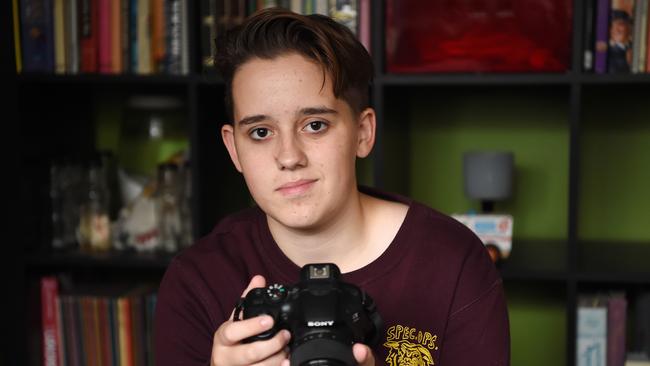Researchers work to give epilepsy patients “weather forecast” of impending seizures
A “weather forecaster” that detects epileptic seizures could soon be made available for suffers, thanks to a major funding boost to Melbourne researchers.

News
Don't miss out on the headlines from News . Followed categories will be added to My News.
Melbourne researchers have been given a $4.2 million boost to develop a “weather forecaster” for epileptic seizures.
St Vincent Hospital neurologists have started their own biomedical company, Seer Medical, to turn their decade of research into a commercialised predictive device.
After developing a reliable at-home seizure monitoring device, which has been used by 800 patients nationally in the past 18 months, they have received $US3 million from the Epilepsy Foundation of America to turn it into a system that can tell epilepsy patients the likelihood of seizures in the following hours, days and weeks.
BITTERSWEET FAREWELL FOR NIMA AND DAWA
MOKBEL COULD WIN PAYDAY OVER PRISON BASHING
MELBOURNE TO GET MASSIVE WATERPARK
At least a third of people with epilepsy get no relief from medication or surgery to control their seizures, which typically come without warning.
Unlike other seizure prediction technology being developed, Seizure Gauge does not require surgery and instead uses 20-cent sized sensors that sit behind the ear to collect the unique signature of brain activity that occurs in the minutes and hours before a seizure.
This will be paired with other data such as heart rate, body temperature and stress level, during the three months calibration period.
Sophisticated computer algorithms will decode this complex pattern, and deliver it as a real-time alert to the patient on a mobile phone app.
Seer Medical co-founder Dean Freestone said technology was now available to build patient-specific predictors, which rightly treated epilepsy as a family of disorders, not one disease.
“We found there is a pattern to seizures that patients and neurologists doesn’t realise,” Dr Freestone said.

“Some patients are more likely to have their seizures on a Tuesday, while others will have a seizure if they’ve slept poorly and the weather is hot.”
Seer Medical will team with the prestigious Mayo Clinic in the US and London’s King College Hospital to test this device in patients over the next three years.
“We believe in three years we’ll be able to solve seizure forecasting,” he said.
“You will enable patients to get back control of their life. It opens the door to new therapies.”
Gabrielle Bloom’s hour-long clusters of tonic clonic seizures come without any warning, and apart from confusion and nausea she experiences after episodes, the 18-year-old has no memory they have even happened.
Her mother Ruth said getting warning of an impending seizure would be life-changing.
“It doesn’t stop her being who she is, but it does limit her,” Ms Bloom said.
“A predictor would give us freedom.
“You could make sure everyone was at home, that she didn’t go out by herself. She could make sure she got plenty of sleep, get her homework done and let her boss know.”


